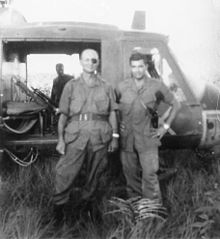

Fifty years ago I was working in the House of Representatives as a congressional page, appointed by Rep. Peter Rodino (D-NJ) for six months during my junior year in high school.
I lived in an apartment near Capitol Hill, attended the Capitol Page School on the third floor of the Library of Congress for a few hours each morning, and spent the rest of the day running errands assigned by a more senior page, who sat at a desk in the corner of the House chamber just outside the Democratic cloakroom.
The eager beavers among us would finish one errand and call the desk for another, often staying away from the chamber for hours on end. I’d always come back, more interested in catching a bit of what was happening on the floor than in delivering gallery passes to some senator’s office or fetching an opinion from the Supreme Court.
In late May, I began making a regular detour to the House lobby, where the big teletype machines were chugging out the latest stories on the growing threat of a third Arab-Israeli War: Egypt’s massing of troops on the border, its expulsion of the United Nations Emergency Force from Gaza and Sinai, its closure of the Straits of Tiran to Israeli shipping, its signing of a mutual defense pact with Jordan, the deployment in Jordan of Iraqi troops and tanks.
I was plenty scared. Four years earlier, as a bar mitzvah present from my parents, I’d spent six weeks in Israel on a program that gave a bunch of Jewish kids from America the experience of an Israeli camp and bus trips around the country, from Rosh Hanikrah on the Lebanon border down to Eilat on the Red Sea.
We took a boat across Lake Tiberias and had lunch a few meters from the Syrian-controlled Golan Heights. We climbed to the roof of a house on the Green Line in Jerusalem and peered through barbed wire at the walls of the Old City. For me, Israel was not an abstraction.
The war began on June 5 and on June 10 it was over. Facing a threat to its less than two decades of existence, Israel now controlled Sinai, Gaza, the Golan, and everything from the Green Line to the Jordan River.
Overwhelmed by relief and pride, natural enough in a Jewish kid of 17, I was astonished to discover that Congress itself was infected by the giddiness I felt.
The face of Israeli victory was Defense Minister Moshe Dayan, the one-eyed general and former chief of staff who had taken personal charge of the capture of East Jerusalem. On the floor of the House I saw members — including conservative Republicans at a time when conservative Republicans weren’t known for being big supporters of Israel — sporting black Dayan eyepatches.
I walked into the Democratic cloakroom and there was L. Mendel Rivers of South Carolina, chairman of the House Armed Services Committee, holding forth.
“Now I don’t want to hear anybody say anything bad about my Jews,” he shouted. “Why, I’d trade 100 F-111’s for one Mo-she Da-yan!”
In fact, Dayan had been in Vietnam that year, going on patrol with a unit of marines to observe modern warfare. What he’d seen, of course, was not going well for the American side.
Here was the United States, the greatest power on earth, sending more and more troops into a war that seemed to have no end while the little Jewish state defeated three hostile nations in less than a week.
No wonder the congressmen were giddy. Fifty years later, the infection has still not gone away.
